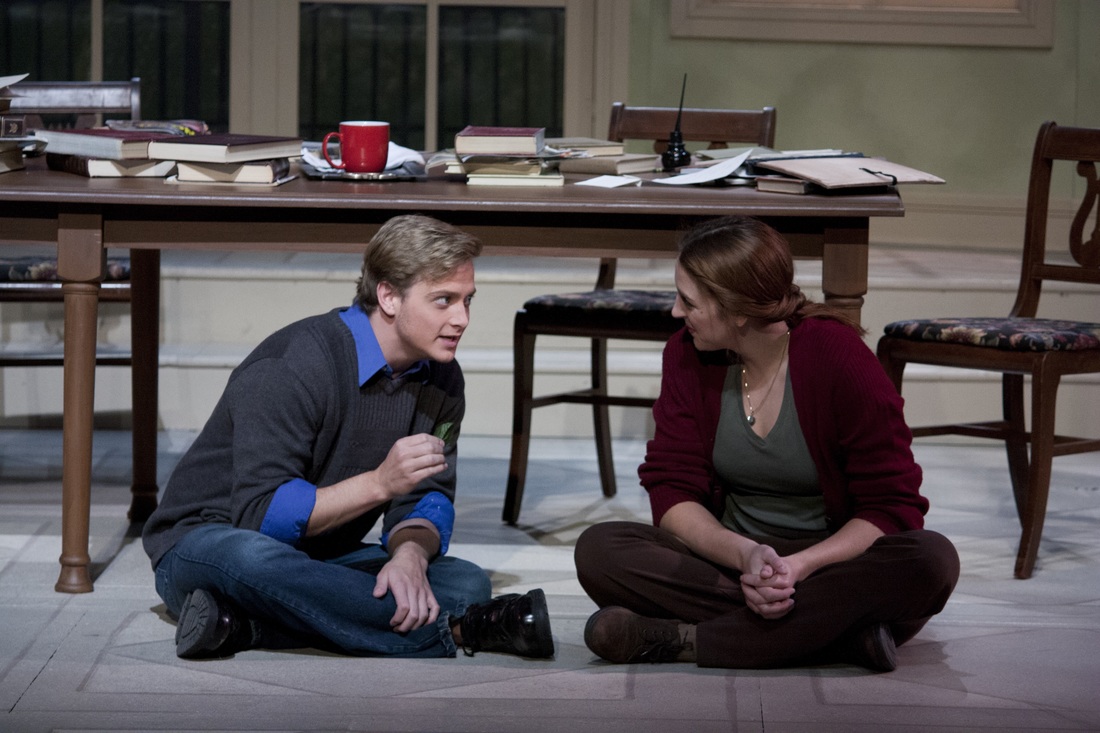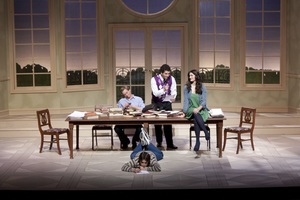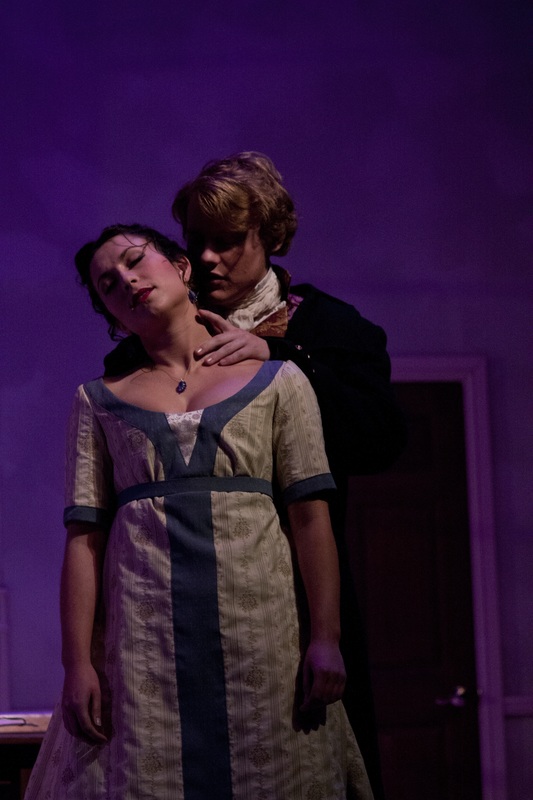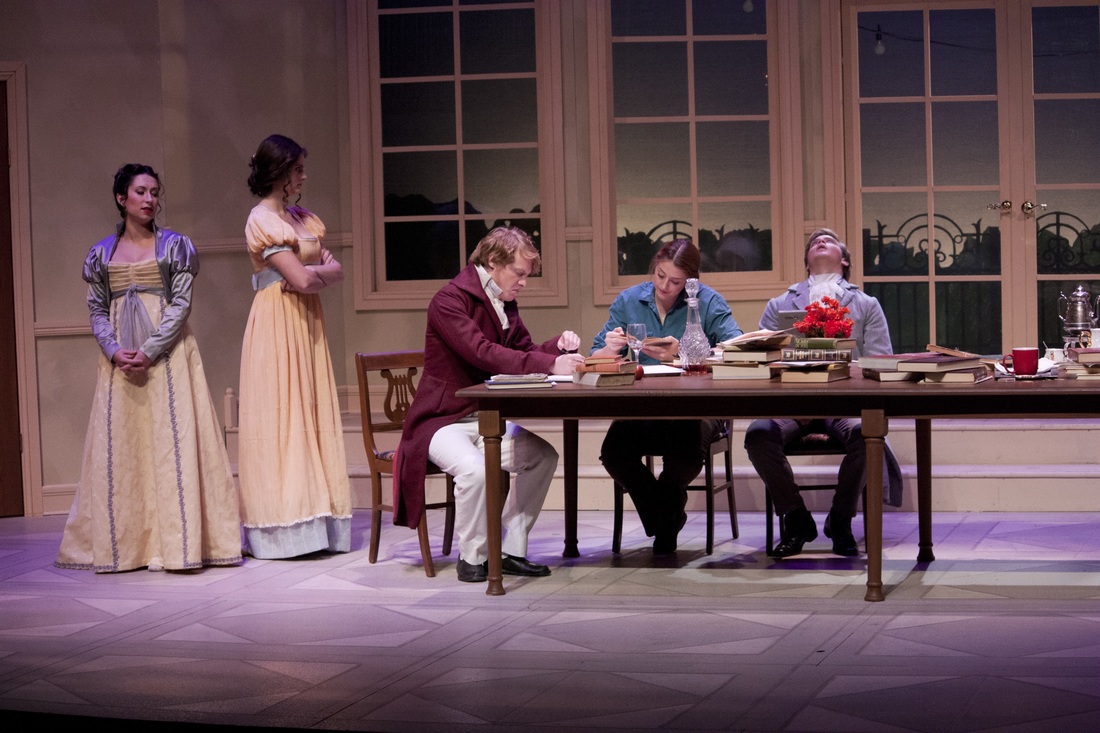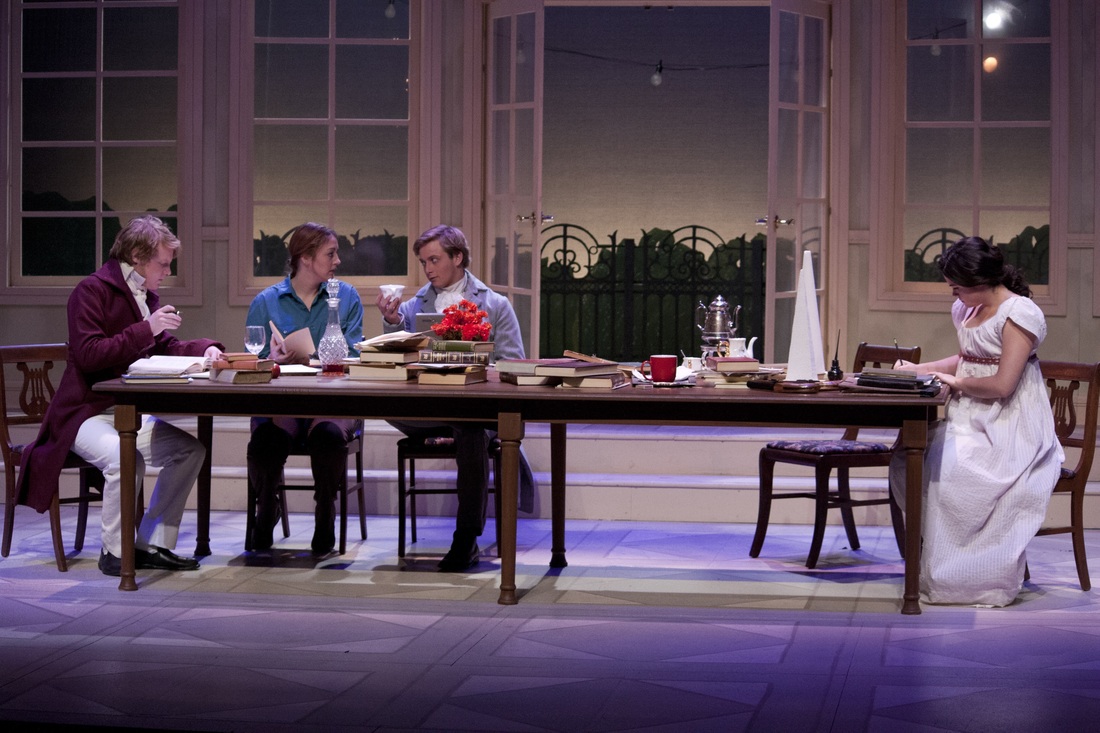University of South Dakota, October 2013There is something magnetic about Arcadia. The beauty, the insight, and the complexity of the play was extremely appealing. Each reading of Arcadia drew me deeper into the lives of the characters, deeper into the various themes, and deeper into the ideas and images that this particular play creates. No matter how many times I read it, in the end it was always a puzzle, a mystery, and a love story.
It is a play built around science, math, Romanticism, Classicism, emotion, and what it means to be human. The characters in this play are three-dimensional, full of principles, and each are on their own quest for truth, knowledge, love, or all of the above. The science, the reason, and the theories are meant to glorify and challenge the characters, while at the same time entertaining and educating the audience. I need to be able to provide answers, thoughts, or suggestions so the audience can grasp some of the ideas, if not a majority of them. Each show is different so a director should approach each show with a new set of eyes, however below are some examples of what I developed during the rehearsal process. These techniques have continued to foster my work as a director and on occasion I have adapted them to fit the production.
|
